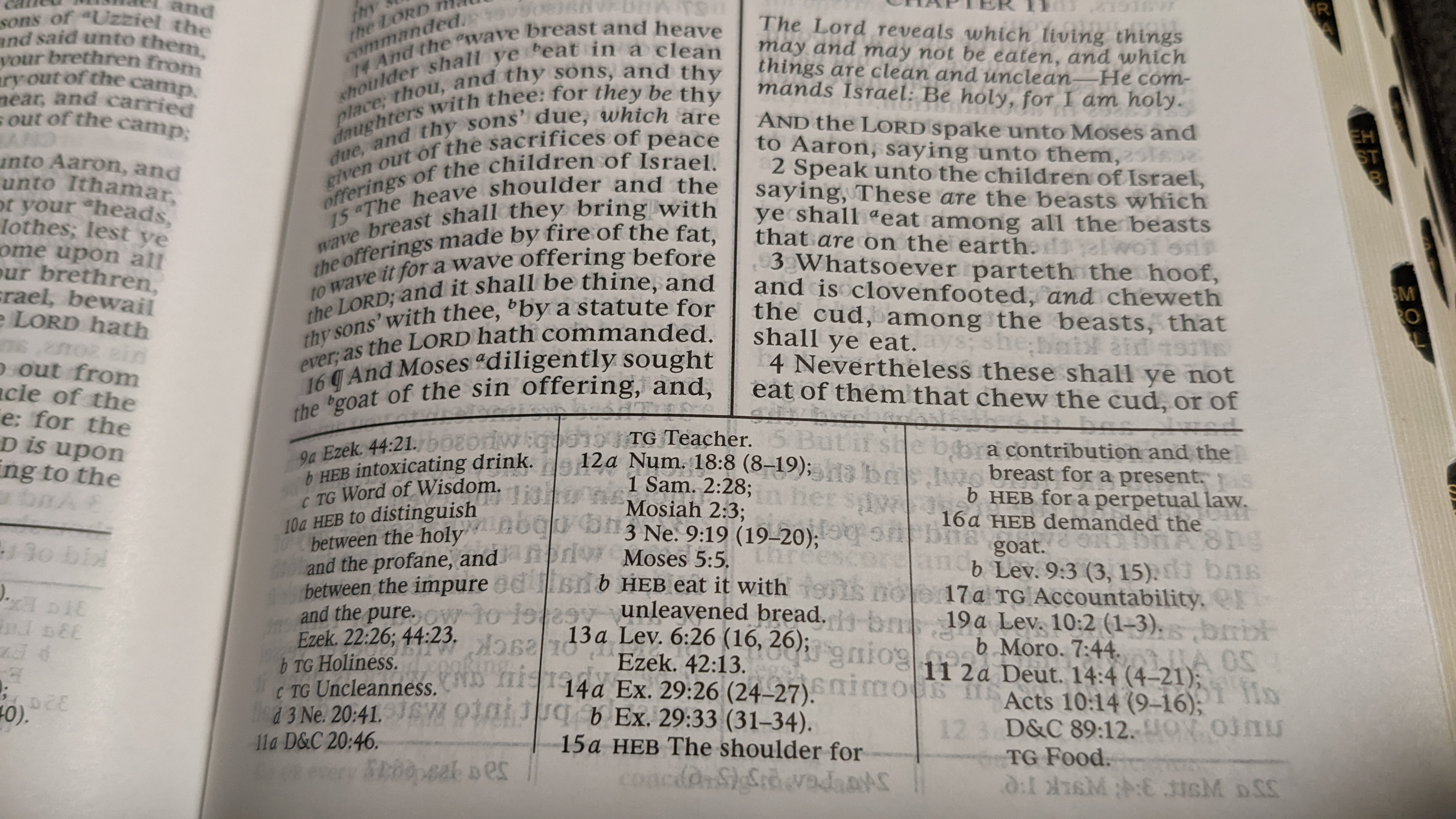Learning Biblical Hebrew
Grant MerrillI decided to learn Hebrew. Gulp
I am a member of the Church of Jesus Christ of Latter-day Saints, and as a member, we have a study schedule that we are recommended to follow every year. A couple of years back, the Church (being the LDS church) created a program called Come Follow Me. Come Follow Me outlines the set of scriptures that you should study during the current year. This year we have been studying the Old Testament (or the Tanakh. Look I’m learning already!).
Studying the Old Testament does not require learning Hebrew. Don’t take away from this little blog post that in order to properly read the Old Testament, you must intimately understand Hebrew. You can understand the Old Testament perfectly fine without learning Hebrew. However, there is a great benefit to be had for your Old Testament studies by learning even a minimum amount of Hebrew. In fact, in the official LDS Old Testament there are footnotes that provide Hebrew help. Some footnotes provide references to other verses that deal with similar ideas or refer to the stories the current verse is talking about. There are other types of footnotes that provide other useful information, but the type of footnote that is relevant to the subject at hand is the HEB footnote (that’s the Hebrew footnote. Woot!). This footnote provides an alternate Hebrew translation for the spot it is referencing. This can be extraordinarily helpful, somewhat helpful, or not at all helpful depending on the context. But I wanted to take it further.
When studying 2 Kings, I came across a story that I’ve heard many times but always thought was just funny and would pass by it. However, this time, I decided to face the reason why I passed by it: I didn’t understand what exactly happened and why it happened. Let me give you the verses in question. It can be found in 2 Kings 2:23-24. Here is the King James version of it:
23 And [Elisha] went up from thence unto Beth-el: and as he was going up by the way, there came forth little children out of the city, and mocked him, and said unto him, Go up, thou bald head; go up, thou bald head.
24 And he turned back, and looked on them, and cursed them in the name of the LORD. And there came forth two she bears out of the wood, and tare forty and two children of them.
If you are not used to reading the King James version of the bible, the short of it: Elisha, a prophet (a recent one at that), gets mocked by “little children” and because of that sics two she bears on all 42 of them. Obviously, as a religious reader, I have to wonder why he seemd to overreact and was there more going on? A important note for the religious reader: There are plenty of things in the bible that can make scratch your head, but we may not have the full historical context of what’s going on, however, in the end your faith in God is matters the most. Contraditions can be found anywhere and everywhere, even in truth. Do not let these doubts crumble your faith.
I don’t feel quite qualified to give an in-depth explanation of what could be happening here. Instead I’ll lead you to a more qualified explanation. In this article, Fred E. Woods describes that some of the misunderstanding comes from the word “children” itself. Suffice it to say, the Hebrew word here is imprecise about the age of these “people”. Another misunderstanding comes from the phrase “bald head”. There is some historical context with Elisha’s predecessor being well known to be hairy and how this could have been used to mock the new prophet when denying that he carries the new prophetic mantle. Woods explains in much better detail how the word used for “bald head” could be figurative and truly be used to question Elisha’s legitimacy as a prophet.
Reading through Woods explanation inspired me to dig deeper in my own bible studies. Since I have always read a translated source of the Old Testament, I thought that it would be a good idea to get familiar with the source of the translation itself. Now here I am on my journey to read the Old Testament in its entirety in Hebrew. I also hope that I can study passages with more historical context in mind as well. We were not with these people when they were around. We do not understand their customs and the things that were important to them completely. But we do have a starting point. I want to get as close as possible to the children of Israel. In doing so, I will get closer to my God.
שָׁלוֹם
